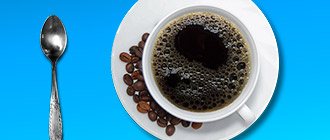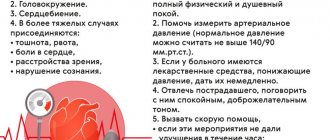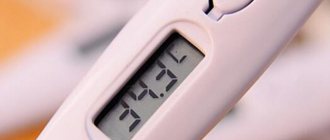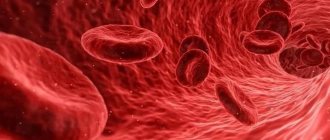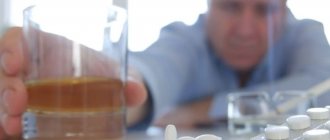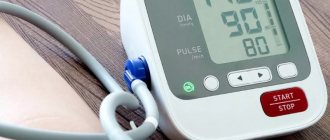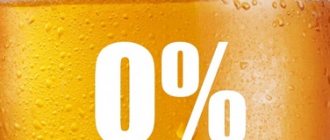How does water affect blood pressure (BP)?
You can find conflicting data about its effect on it.
Some doctors recommend using it for hypertension, others for hypotension. Both options have a right to exist, since water can both cause an increase in blood pressure levels and reduce it. The main mechanisms of its influence:
Through pressure receptors: when the filling of blood vessels with water increases, they expand. But a rapid increase in blood volume can lead to a narrowing of their lumen.- In response to insufficient blood supply to the brain, with dehydration, pressure in the vessels increases (ischemic reaction).
- Compounds dissolved in water act on the chemical receptors of blood vessels: when there is a lack of oxygen in the bloodstream and an excess of carbon dioxide, they relax.
Lactate (a substance that acidifies the blood) affects them in the same way. It is removed dissolved in water. Lactate is produced during exercise. Carbon dioxide is the result of chemical reactions in the body with the participation of oxygen and is released during respiration. - Through the level of elements in the water that enter the food and then into the blood. When sodium increases, vasoconstriction occurs. This also occurs when the amount of calcium and magnesium decreases. The level of potassium affects in two directions at once: at normal levels it causes dilation of blood vessels, and at its excess it causes a decrease in their lumen.
- Through the level of insulin (a hormone that affects the flow of sugars into cells). As it grows, the lumen of vessels of renal origin decreases, and norepinephrine (one of the stress hormones) increases. Its amount is inversely proportional to the water supply.
- Through regulation by the kidneys: with a decrease in pressure, the excretion of water and, accordingly, salt dissolved in it decreases. This entails his increase.
There are other mechanisms for regulating blood pressure, but they are less tied to the amount and composition of water consumed.
About the benefits of clean water for our body
- Regular drinking helps eliminate salts, toxins and waste that accumulate in cells and clog our body, causing serious harm to it. Water, according to most scientists, stabilizes the functioning of the kidneys, which are a natural filter and are responsible for cleansing the body. In other words, the more water we drink, the easier it is for the kidneys to remove harmful substances. Just 150-200 ml of warm water on an empty stomach will best cleanse the mucous membranes of toxins accumulated overnight and “start” the functioning of the gastrointestinal tract.
- By drinking glass after glass of clean water throughout the day, we not only cleanse our body, but also fight fat deposits. It has been proven that the less water the body contains, the easier it is to gain excess weight. The benefits of water for weight loss are evident in the fact that it is the only product that does not contain calories. However, if we are talking about a bottled product, this is not always the case and a certain amount of calories may still be present in it. A glass of water that fills your stomach can reduce your appetite and dull the feeling of hunger. Isn’t this, first of all, what people who jealously watch their weight need?
- By removing waste products, water is necessary for the normal functioning of the digestive system. It reduces the risk of developing infectious diseases, and is also a natural lubricant for joints. Cartilage and joints that do not receive the required amount of fluid become more fragile and prone to damage. Painful sensations in the joints often occur, which is again associated with a large accumulation of toxins in the blood. Frequent drinking helps prevent arthritis, reduce back pain and even strengthen the spine, because 3/4 of it consists of water.
- Water is an excellent thermostat. It’s not for nothing that doctors recommend drinking more after active sports or during high fever. Water “cools down” a hot body and normalizes body temperature. Regular intake of water on an empty stomach is a good prevention of heart disease. Cardiologists are confident that a person who consumes a sufficient amount of H2O per day reduces the risk of heart attack to a minimum.
- Water is also essential for healthy skin. As a result of dehydration, the skin becomes dry, loses elasticity and may even begin to peel. In addition, the concentration of toxins increases, and their difficult removal through the skin through sweat can lead to inflammation and skin irritation. Water saturates our cells from the inside, moisturizes the skin and prevents its rapid fading.
Consumption rate
It is very important to avoid dehydration so that the ischemic and renal mechanisms for regulating blood pressure do not become involved. To do this, you need to consume its normal amount. Each person has their own norm.
It is defined:
- floor;
- age;
- physical activity;
- air temperature (climate and time of year).
The exact value can be calculated using a special calculator or by multiplying the weight by 0.03 liters.
You can also determine the ideal amount of H2O by monitoring blood pressure readings or by the color of your urine (it should not be too dark and not too light).
American scientists have established the average value of water consumption at 1.5 liters for people leading a sedentary lifestyle and 2 liters for physically active individuals.
Water can remove medications from the body, so excess is harmful.
What causes thirst
The following factors increase the need for water:
- alcohol consumption
- increased amount of fiber in the diet
- certain diseases associated with water-salt imbalance, such as diabetes and kidney disease
- being on an airplane or in rooms with forced air circulation
- staying in mountainous areas
- hot and dry weather
- increased consumption of proteins, salt and sugar, carbohydrate deficiency (ketosis)
- taking diuretics
- physical exercise
- pregnancy or breastfeeding
- diarrhea, vomiting
- rise in body temperature
- surgery, blood loss, or burns
- infancy or old age.
Let us illustrate one of the above points with an example. It is known that active sports training significantly accelerates metabolic processes in the body, which is accompanied by increased sweating. All this leads to a significant increase in water demand. When training takes place in a hot atmosphere or in the sun, the need for water is even higher. For example, during intense physical activity, an athlete can additionally lose about 1.5–2 liters of water per hour.
Can hypertensive patients have a lot of fluids?
It is not recommended to drink more than 500 ml at one time, since the kidneys may not have time to cope with a large amount , and the pressure in the blood vessels will increase.
A spasm can also be caused by a sharp increase in blood volume. It is advisable to consume no more than 2.5 liters per day.
Consuming a lot of it is contraindicated for pregnant women (with an increase in blood pressure during toxicosis). When consumed in excess, water can accumulate in the form of edema.
You can identify them by pressing your fingertip on the ankle area. If the dimple does not go away, water retention occurs.
The entry and exit of water from the body
Every day, water enters our body with drinks and food, and a certain amount of water is formed during metabolism (for example, when burning fat). On average, the human body receives about 1450–2800 ml of water daily:
- drinks (550–1500 ml)
- food (700–1000 ml)
- metabolism (300 ml).
And with the help of the skin and lungs, gastrointestinal tract and urinary system, the same volume of water (1450–2800 ml) is removed from the human body every day:
- urine (500–1400 ml)
- evaporation by skin (450–900 ml)
- exhaled air (350 ml)
- stool (150 ml).
However, when the intensity of the body’s work changes (physical activity, various diseases), our body needs a larger volume of incoming fluid.
How much should I drink daily?
To answer this question, “banal” and publicly available tests will help you - a clinical blood test with determination of hematocrit, a general urine test with determination of specific gravity.
For a more informative assessment of the presence of fluid in the body, bioimpedance measurement will help - based on the results of the procedure, you will see how much fluid, fat mass and fat-free mass, including bones, muscles and internal organs, are contained in your body.
Based on the results of these examinations, the doctor will be able to accurately say whether there is a need to correct the drinking regime and more.
Which one is better?
H2O with high blood pressure:
Should not contain chlorine.
Dagestan doctors conducted a study involving almost 10,000 people. It found that people who drank water rich in magnesium, calcium and bicarbonates developed hypertension less frequently than those who drank chlorinated, sulfate water with a high sodium content.You can buy mineral water with this composition or use filters that remove chlorine and, if possible, sodium from it. It is advisable to start taking medicinal mineral water after consulting with your doctor.
- Preferably, it should be clean, without impurities. Without adding black tea, coffee, not in the form of juice, milk, compote.
- No unnecessary processing. Boiled no more than once, undistilled.
- You can drink water with lemon juice added (lowers the pH level), mineral water (you need to look at the composition). A study was conducted on patients with hypertension, during which it was found that mineral water leads to a decrease in cholesterol and insulin in the blood (on an empty stomach).
It is advisable to drink water without adding tea or coffee, with pre-filtered chlorine, or with the addition of citric acid.
Causes and risk factors
All standards are calculated for standard living conditions. However, sometimes even more fluid is needed to prevent dehydration. This primarily applies to people who sweat a lot. And it doesn’t matter what caused it: hot weather, intense training or hormonal imbalances.
You should drink significantly more:
- pregnant women;
- nursing;
- athletes;
- after poisoning accompanied by diarrhea or vomiting;
- after heatstroke;
- during periods of frequent urination.
It is recommended to drink more while on a diet. A person who is losing weight does not receive nutrients in the usual amount. You can’t limit yourself to fluids to avoid metabolic disorders.
Dehydration often accompanies certain diseases. With diarrhea caused by intestinal infections, a large amount of fluid is lost, but alkaline ions are excreted along with it, so acidification of the body, or acidosis, develops. In children, this type of pathology develops rapidly and leads to severe disturbances in the functioning of internal organs. Salmonellosis, cholera and other forms of gastroenteritis can lead to dehydration.
If the disease is accompanied by vomiting, the body loses acid. Therefore, the blood reaction shifts to the alkaline side, which also adversely affects the general condition.
Burns to the surface of the body lead to severe forms of dehydration. In young children, even a 1st degree burn, when hyperemia of an area of the body occurs, may already be accompanied by loss of fluid. With more severe burns, when a bubble with interstitial fluid appears at the site of injury, the body loses a significant amount of blood plasma. A severe form of dehydration develops, which without treatment is fatal.
Loss of fluid is observed in diabetes mellitus, diabetes insipidus, and Addison's disease. Therefore, if left untreated, these pathologies can lead to severe dehydration. The risk increases in older people.
Dehydration can result from uncontrolled use of diuretics. They are prescribed to patients with hypertension, but some women use diuretics to reduce body weight. With constant use of pills, the body loses a lot of fluid and electrolytes, and severe disturbances in the functioning of the heart appear.
What is a “water” diet and when is it used?
With this diet, reduce the amount of food by 2-3 times and increase the amount of water (no more than 3 liters per day).
Water is taken at the same intervals: before and after meals, drink one glass.
Before going to bed, to avoid swelling, you can refuse to drink. A positive effect is obtained by removing excess salts accumulated in the body.
When carrying out a diet, it is necessary to control the amount of urine excreted . It should increase. If this does not happen, there may be a problem with the kidneys, which means the diet should be stopped.
Some people replace such a diet with 1-2 days of fasting, while drinking not only plain water, but also low-fat broth, juice, and fruit drink.
This diet is used by middle-aged hypertensive patients. It is advisable to start with a gradual increase in the amount of water.
Useful and important information about human water consumption is presented in this section.
Drink filtered water
A glass of water drunk on an empty stomach has the maximum benefit. Having lost moisture during sleep, the body needs to restore it. Drinking water on an empty stomach is one of the best habits. It’s good to take care of a portion of your morning liquid in advance and throw a slice of lemon and lime into the glass. Drinking this vitamin infusion on an empty stomach will charge you with energy for the whole day!
Just don't forget about purifying the water. The dangers of tap water leave no room for doubt. Boiled water, which many of us are accustomed to drinking, is also not suitable for healing. It’s not called “dead” for nothing. Of course, it will not cause serious harm, but such water is devoid of nutrients and oxygen, which means the effect of its use will be minimal.
Boiled water can be used in one case, if, apart from raw water of questionable quality, there are no other sources of liquid nearby. In all other cases, preference should be given to filtered water, since the variety of household filters allows this to be done quickly and without special financial costs.
The material was prepared by the doctor of the ultrasound department “Grodno University Clinic” Kaskevich Yu.Yu.
Salt to taste
Mineral water has the right to be called a liquid extracted from an officially registered underground source, with the original set of salts preserved. What kind of water is in the bottle should be written on the label. Look for the words "sediment at 180 degrees", "total salinity" or "total salinity" - they all mean the same thing.
Depending on how many chemical elements and other substances can be dissolved in water, it is declared medicinal (10-15 g of salts per liter, drunk only as prescribed by a doctor). You should not overuse medicinal waters - this can lead to salt deposits and other rather unpleasant consequences. Medicinal table waters contain 1-10 g of salts per liter, are used for preventive purposes and are also not suitable for constant use.
Table mineral water contains no more than 1 gram of salts per liter; it can be drunk at any time. And it would be nice if half of those “daily 2 liters” were just such water. You don’t have to worry too much about your choice and focus on your own taste - just drink the mineral water that you find especially pleasant. But if you intend to select a certain pool of mineral waters for constant use, for example, as part of a weight loss program or a maintenance course for any chronic disease, consultation with a specialist is necessary.
Mineral waters are classified according to the salts they contain:
- Bicarbonate ( "Arkhyz"
). Recommended for people leading an active lifestyle, infants and patients with cystitis. Harmful for gastritis. - Sulfatnaya ( “Essentuki No. 20”
). Recommended for liver problems; it has a mild laxative effect. Contraindicated in children and adolescents, since sulfates can interfere with calcium absorption, which means bone formation. For the same reason, women over 50 who are at risk for osteoparosis should not drink it. - Chloride ( Essentuki No. 4, Aksu
). Regulates the functioning of the intestines, bile ducts and liver. Harmful for high blood pressure. - Magnesium ( "Narzan", "Erinskaya"
). Helps with constipation and stress, not recommended for people prone to stomach upsets. - Fluoride ( "Lazarevskaya", "Sochinskaya"
). Recommended for pregnant women and people suffering from osteoporosis. Contraindicated for those who have fluoridated tap water at home. - Zhelezistaya ( "Marcial", "Polyustrovskaya"
). Indicated for iron deficiency anemia. Contraindicated for peptic ulcers. - Kislaya ( "Shmakovskaya"
). Recommended for low acidity of gastric juice. Harmful for ulcers. - Sodium ( "Smirnovskaya", "Narzan"
). Helps with constipation and poor digestion, not recommended for hypertensive patients and those prescribed a low-salt diet. - Calcium ( "Smirnovskaya", "Slavyanovskaya"
). Recommended for milk intolerance, pregnant women, children and adolescents. May reduce blood pressure. It has no strict contraindications.
Most mineral waters contain a large range of salts and therefore belong to several classes at the same time. For example, “Smirnovskaya” is sodium-calcium, “Narzan” is sodium-magnesium, etc. By the way, there is no need to cook in a “mineral water”, even a dining room one - when boiling, the salts give sediment and can form compounds that are not absorbed by the body.
